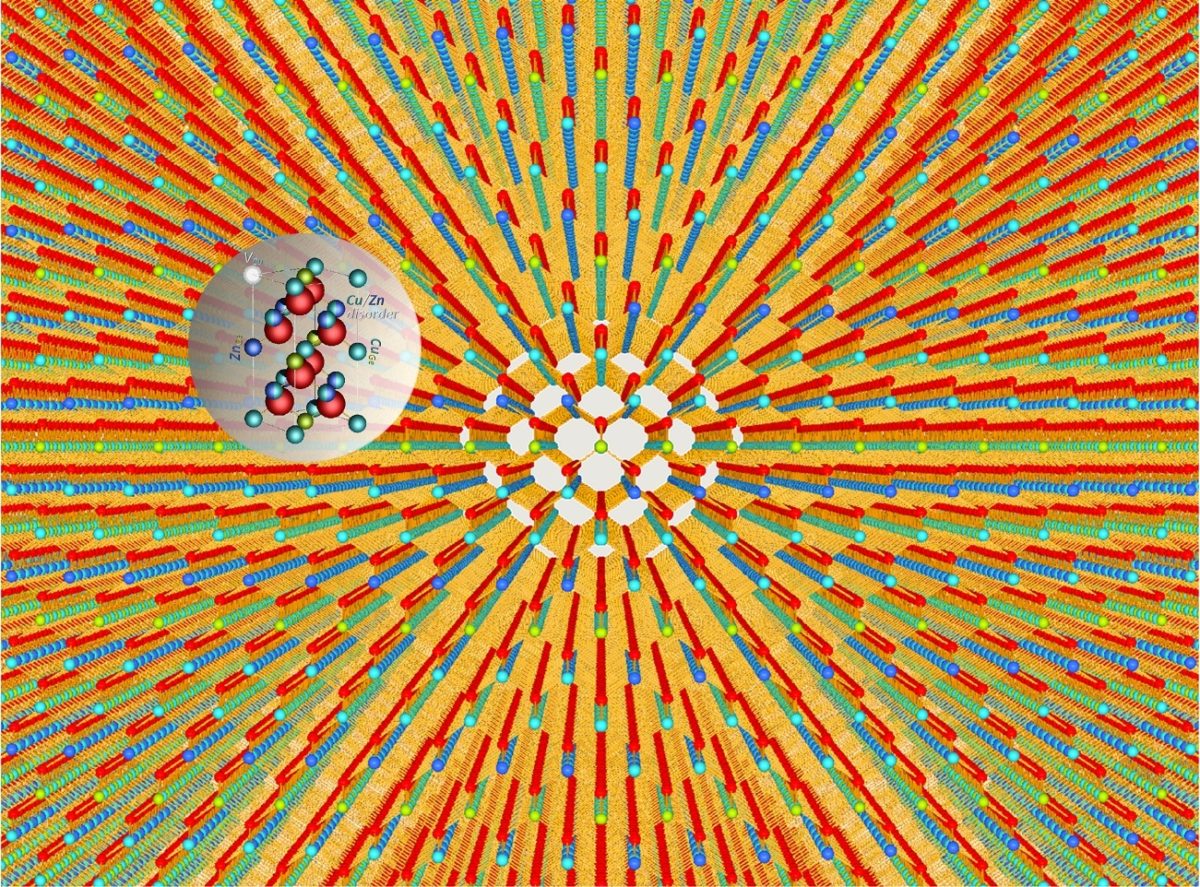Researchers at Germany’s Helmholtz-Zentrum Berlin are seeking to replace tin with germanium in the development of solar cells based on kesterite, which is one of the most promising light absorber material candidates to lead the next generation of thin film solar cells.
Kesterites are comprised of common elements, such as copper, tin, zinc and selenium and, unlike Copper Indium Gallium Selenide (CIGS) compounds, no supply bottlenecks are expected in the future. The latter, however, is currently able to provide cell efficiencies close to 20%, while kesterites have so far achieved efficiencies of just 12.6%.
In its research, the team led by Professor Susan Schorr has gained new insight into the opto-electronic properties of non-stoichiometric kesterite samples, in which tin atoms were replaced with germanium, by using neutron diffraction at BER II. This technique has allowed them to see more accurately how copper, zinc and germanium can be distinguished from each other, and to locate them in the crystal lattice.
The researchers found that kesterites with a slightly copper-poor and zinc-rich composition in solar cells with the highest efficiencies also have the lowest concentration of point defects, as well as the lowest disorder of copper-zinc. They further found that the energy band gap in the cell also depended on the composition of the kesterite powder samples, and that a higher concentration of copper was particularly detrimental to the cell’s performance.
“This band gap is a characteristic of semiconductors and determines which frequencies of light release charge carriers within the material,” said research coordinator, René Gunder. “We now know that germanium increases the optical band gap, allowing the material to convert a greater proportion of sunlight into electrical energy.”
This content is protected by copyright and may not be reused. If you want to cooperate with us and would like to reuse some of our content, please contact: editors@pv-magazine.com.




1 comment
By submitting this form you agree to pv magazine using your data for the purposes of publishing your comment.
Your personal data will only be disclosed or otherwise transmitted to third parties for the purposes of spam filtering or if this is necessary for technical maintenance of the website. Any other transfer to third parties will not take place unless this is justified on the basis of applicable data protection regulations or if pv magazine is legally obliged to do so.
You may revoke this consent at any time with effect for the future, in which case your personal data will be deleted immediately. Otherwise, your data will be deleted if pv magazine has processed your request or the purpose of data storage is fulfilled.
Further information on data privacy can be found in our Data Protection Policy.